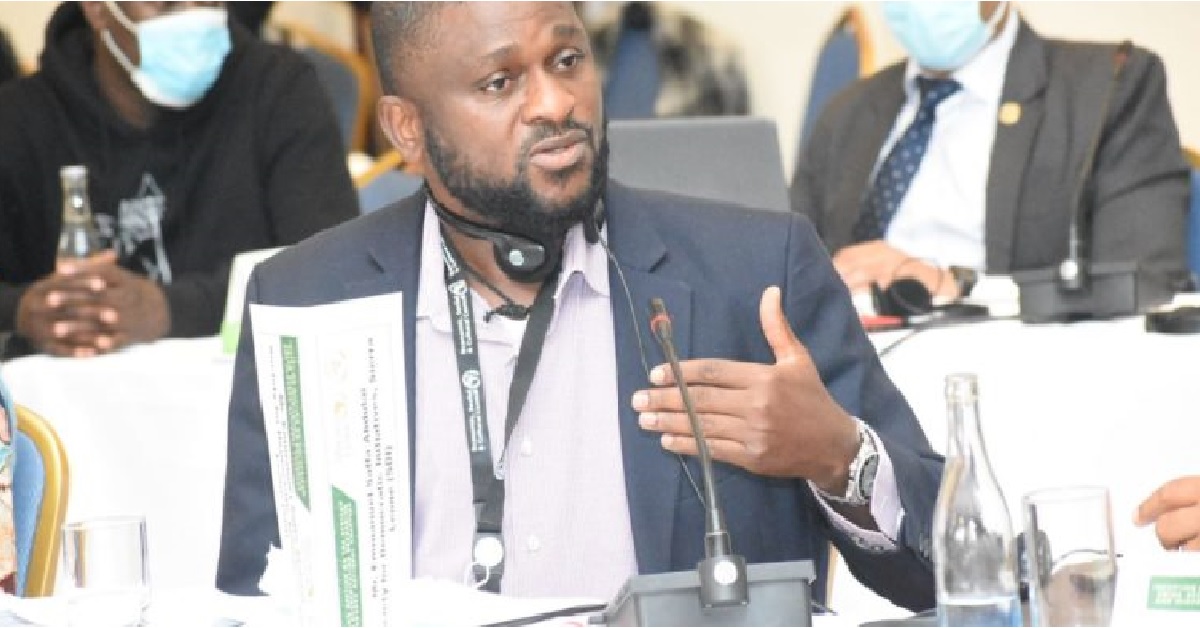Emmanuel Saffa Abdulai, Chairperson of the Political Affairs Cluster in the African Union Economic, Social & Cultural Council (ECOSOCC), told a meeting of the continental civil society platform on Wednesday that not only has African CSOs been excluded from important discussions, but that they also lack access to resources and information due to policies of both the African Union and the European Union.
JAES, the blueprint of the EU-Africa partnership, sets out the intention of both continents to move beyond a donor/recipient relationship towards long-term cooperation on jointly identified, mutual and complementary interests.
Launched at the 2007 EU-Africa Summit in Lisbon, the strategy specifically seeks to encourage political leaders on both sides to nourish a people-centred partnership. And as part of this effort, CSOs are supposed to play a major role.
ECOSOCC is an organ of the AU which serves as an advisory body comprising different social and professional groups from the member states. Its purpose is to give civil society organizations a platform to contribute in the AU institutions and decision-making processes. Abdulai, as Chair of the Political Affairs Cluster of the Council, spoke on Engaging Civil Society Effective AU-EU Partnership.
He says that civil society’s role in designing, implementing and monitoring of the implementation of JAES has been limited in scope and involvement, thereby greatly affecting the implementation and outcomes of the program.
”CSOs have continued to be left on the margin even as we enter the post-JAES strategy development process,” Abdulai told the over 200 fellow civil society activists at Wednesday’s meeting.
“There remains an information gap on the part of the African Union on the outcomes of negotiations with the EU despite the fact that the EU has released theirs,” he pointed out.
The civil society platform meeting, which was held virtually, is in preparation of the Africa-EU Summit next week.
ManoReporters learnt that Sierra Leone’s President Julius Maada Bio is expected to take a lead in the meeting which takes place from 17 to 18 February in Brussels, Belgium.
Like the rest of its programmes, JAES is expected to role into the AU’s Agenda 2063. And Abdulai says for this to be effective it will require the full involvement of CSOs in achieving programmes like the Africa free trade.
The Sierra Leonean activist said besides the structural inequalities, civil society also has to deal with general lack of funding to engage effectively in the JAES process.
African CSOs, he noted, are required to rely on their EU counterparts for funding on the excuse that they lack the capacity to handle grants, and in the end little funds get to them. He stressed that it’s unacceptable to to give aid to only European CSOs only for their African counterpart to become an “appendage.”
The consequence of that approach, according to Abdulai, is a catalogue of issues that continue to bug the continent which in turn affects Europe, like youth unemployment, drug abuse, crimes and irregular migration.
Abdulai said the lack of economic opportunities have had negative impact on democracy on the continent, whereas citizens see nothing good in popular democracy, which he said partly explains the resurgence of military coups.
“Tackling the youth problems is an AU-EU emergency,” he said. “African civil society can play a pivotal role in this.”
Abdulai’s address also touched on climate change, among other contemporary issues. He called on EU and African leaders to consider investing in education and agriculture as one way of addressing the myriad of problems facing the continent.
But he also said that to invest in education and agriculture, the past approach of ensuring most of the resources go back to the donor country should be discouraged, in favour of the model that measures investment in aid by output and tangible results.
“It is time for AU and EU to take forward the agenda of JAES and to ensure that the approach and implementation are people-centred,” he said, adding: “To achieve a people-centred partnership civil society should be given a more prominent role; a seat on the table and not on the peripheral marginal meetings.”
Next week’s EU-Africa Summit is the sixth edition of the meeting of EU and African leaders, which was first held in 2000 in Kairo, Egypt.
This one comes four years after the last edition in 2017 in Abidjan, Côte d’Ivoire. Back then the leaders adopted a joint declaration outlining common priorities for the EU-Africa partnership in four strategic areas: economic opportunities for youth; peace and security; mobility and migration; and cooperation on governance.
EU and AU officials say this summit presents a unique opportunity to lay the foundations for a renewed and deeper partnership with the highest political involvement and based on trust and a clear understanding of mutual interests.
Among other issues, the leaders are expected to discuss how both continents can build greater prosperity.
The aim is to launch an ambitious Africa-Europe Investment Package, taking into account global challenges such as climate change and the current health crisis.
At the heart of the two days discussions will also be promotion of stability and security through a renewed peace and security architecture.
A series of thematic roundtables are also planned on areas including growth financing, health systems and vaccine production, agriculture and sustainable development.
The summit is expected to end with the adoption of a joint declaration on a joint vision for 2030.











